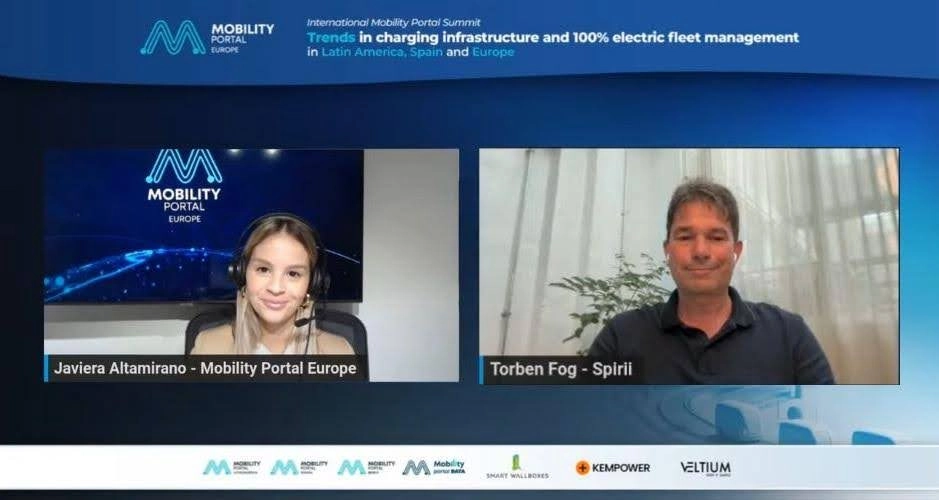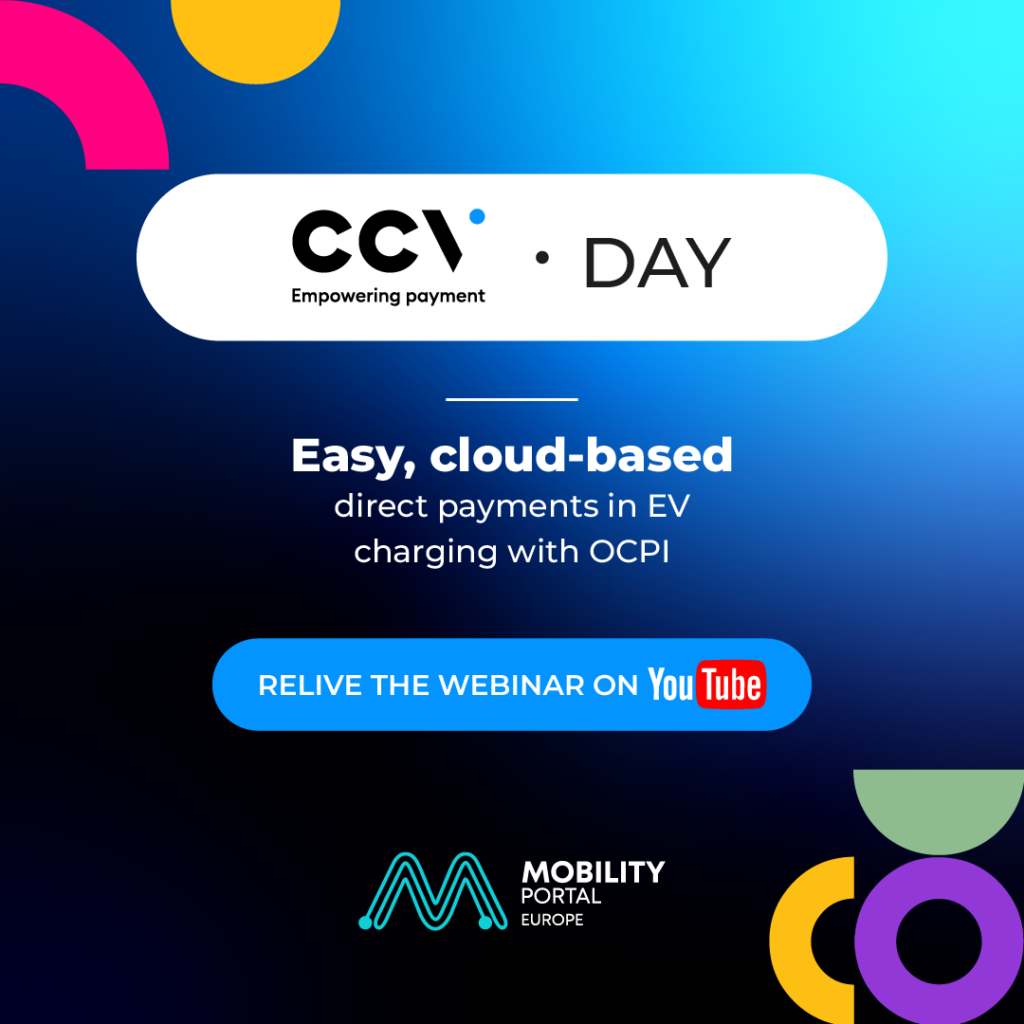During the International Mobility Portal Summit, organised by Mobility Portal Europe, Torben Fog, Co-Founder and CIO at Spirii, discusses the current challenges faced by electric vehicle fleets and how the company can help address them.
“When a company electrifies a fleet, it also faces the problem of obtaining grid connection,” says Fog.
“We see that the Netherlands, Germany, Denmark, and other countries are experiencing similar delays in this regard,” he adds.
How can Spirii help solve these problems?
“With the tools we have, we can assist with energy management systems. We can even integrate existing systems,” explains the Co-Founder.

And he continues: “Using energy management systems, we can often improve time-to-market and shorten the waiting time for the necessary power capability to operate the desired business”.
“In this way, dynamic load management can be implemented. We also offer an advanced version of this,” he adds.
In this manner, the company can interact with the system and ensure that energy is always available.
On the other hand, Fog acknowledges that while Vehicle-to-Grid (V2G) is a trend that “has been considered for a long time,” he recognises that this technology “is still ahead of us.”
“Today it is possible to perform unidirectional charging while also helping to stabilise the grid. In several countries, frequency regulations can be implemented in different ways,” he adds.
Additionally, the Co-Founder highlights that Spirii enables companies to secure a return on investment.
“The trend is accompanied by significant investments in infrastructure, grid connection, and other necessary aspects,” he comments.
However, he explains that “operational expenses can be reduced while simultaneously extracting value by helping to stabilise the grids.”
What are the trends in heavy-duty vehicle charging according to Spirii?
“There is currently a strong push towards the electrification of buses, and in this area, we see increased attention on how to use the infrastructure in the most optimal way,” says Fog.
This raises questions.
What can be done when the chargers are not in use? Can a private station be used and then opened for public or partner charging at specific times?

Spirii’s platform can address these issues.
“We can also help generate additional income from the charging infrastructure and potentially from the batteries,” says Fog.
“Additional value is generated by helping to stabilise the power grids, which varies depending on the country,” he adds.
Another topic under discussion, related to heavy-duty vehicles, concerns the different standards currently in place.
“The most widespread standard in Europe is the Combined Charging System (CCS), which is being used for most light and heavy trucks. But now we see a high demand for the Megawatt Charging System (MCS),” acknowledges the Co-Founder.
In this regard, he explains: “We see that infrastructure owners and fleet companies are a bit confused.”
According to the Spirii representative, these companies are wondering if the vehicles they purchase will be able to use the MCS infrastructure or if they will need a “mix” of various chargers, among other questions.
“We have information on some fleets and the vehicles they may receive. Some of them come with both CCS and MCS connectors, but others do not.”
What is the situation of electric heavy-duty vehicles in Denmark?
Compared to other countries in the region, Denmark is lagging behind in the electrification of heavy transport.
According to Fog, only one per cent of trucks are zero-emission.
However, he acknowledges that “there is a strong political push to increase the volume.”
In this regard, the CIO of Spirii highlights that incentives “are helpful” and that, if announced, “they will be well received.”
The fact is that heavy transport fleet owners must invest large sums of money to develop their businesses.
“The initial investment, the infrastructure, and the grid connection are expensive,” he acknowledges.
However, Spirii can help extract value and increase revenue through certain practices, such as grid stabilisation.
“This is useful. But incentives could also be helpful,” comments Fog.
On this topic, the CIO highlights the possibility of having dynamic hourly pricing.
“This is something we have been asked for quite some time and we launched it almost two years ago,” he says.
In this way, Spirii offers the possibility of hourly updating electricity prices, such as the price per kilowatt-hour.
About Spirii
Spirii has been leading the advancement towards smarter and simpler electric mobility for 12 years, both as a charging point operator and platform provider.
In this regard, the company offers solutions for various segments: heavy transport, logistics sector, large and small charging point operators (CPOs), among others.
In this way, Spirii helps businesses harness the power of electric mobility and embrace the path towards a greener future.
While the firm originates from Denmark, it currently offers its solutions in more than 18 countries, thereby having over 250 partners who have achieved a 300 per cent annual revenue growth.
Relieve the International Mobility Portal Summit:






